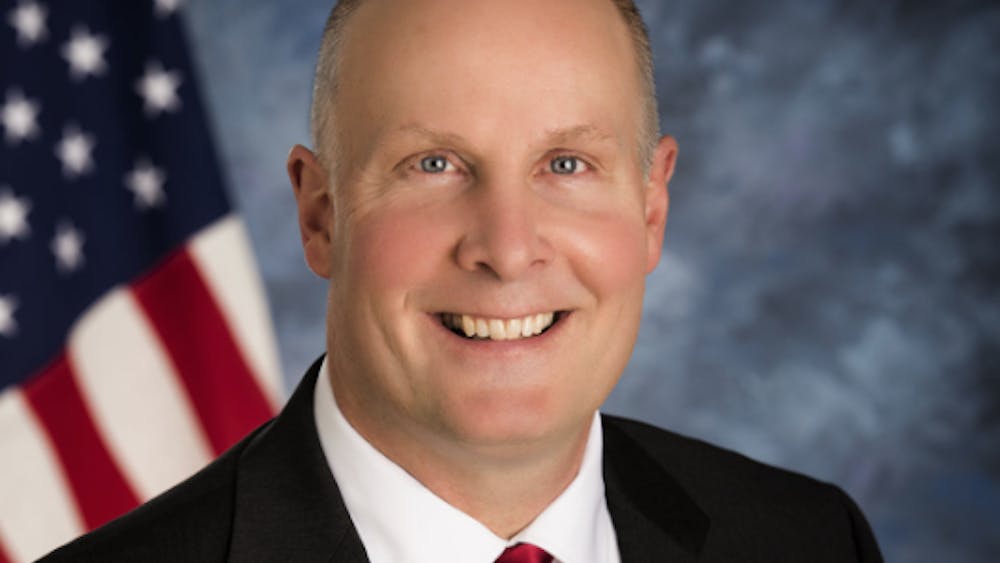'Preserving your peace'
Central Civics discusses difficult conversations and boundaries at Dinner Table Politics event

Student coordinator of Central Civics, Harry Krafchak, discusses skills to use when having political conversations during the holidays at Dinner Table Politics, an event that happened at 6 p.m. on Monday, Nov. 25 in the Bovee University Center Volunteer Center.
Smiling faces and laughter filled the Volunteer Center in the Bovee University Center even though only a handful of people attended the annual Dinner Table Politics on Monday, hosted by Central Civics.
While enjoying dinner, different organizations spoke about how to have political conversations during the holidays.
“It’s important to have conversations (like these) every year,” Harry Krafchak, Central Civics student coordinator said.
The event provided detailed information on the different sources Central Michigan University’s library provides about politics, how to have political conversations with those who may not agree and how to set boundaries with family members.
The event was joined by Counseling Center Executive Director Melissa Hutchinson and Associate Director Kristie Miner as well as Instruction and Outreach Librarian Lee Parker to discuss more on these topics.
Krafchak said there are many skills people can use to keep difficult conversations peaceful. Some keys to what he called “constructive dialogue” were:
- Using “I” statements when talking about your own perspectives and beliefs
- Taking breaks if needed
- Asking open-ended questions
He said when having political discussions with family members, it is important to listen with respect and empathy, discuss facts instead of opinions and find a common ground in the conversation. Krafchak and Hutchinson put a strong emphasis on "preserving your peace" in these moments.
“Dialogue is not about agreeing, it’s about understanding,” Krafchak said. “It’s about finding common ground.”
After talking about these skills, Hutchinson and Miner lead a discussion on how to set boundaries during political conversations.
Hutchinson said many different kinds of boundaries can be set. She called these boundaries “lines, fences and walls,” and the kind of boundary that needs to be set depends on your relationship with the person.
“Every situation requires a different boundary,” she said.
Line boundaries can easily be “crossed over” at any time, and are set with individuals you can trust, Hutchinson said.
Walls are boundaries set with those who will not be able to have a healthy conversation. An example of a wall boundary is phasing yourself out of a conversation that is making you uncomfortable or finding an excuse to walk away, she said. Fences are somewhere in between.
“At the end of the day, remember that we can only control ourselves,” Hutchinson said. “We can’t control other people.”
Brooke Gordon, a senior at CMU, said that she was interested in this event because she believes that learning how to have constructive political conversations are important.
“I value civic engagement a lot,” Gordon said. “Often times the beginning of the conversation starts with events like these.”
Not all who were present were students. Norma Bailey is co-chair of Central Civics, and although she is retired, she came to support Krafchak in this event.
“I strongly want to support young people,” Bailey said. “I think it’s important … to hear what people were saying (in the conversation).”



